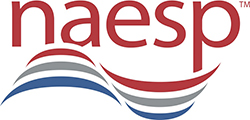ASSESSMENT THAT SUPPORTS EQUITY
Strategies to encourage progress instead of measuring what’s already known.
By Ann Jaquith
Principal, May/June 2019. Volume 98, Number 5.
Assessments such as standardized state tests and those administered by the College Board are often used to evaluate what students have learned. Since No Child Left Behind (NCLB), educators have called attention to the damage done by the nation’s persistent focus on assessments of learning. One concern is that repeated poor performance eroded students’ belief in their own capabilities to learn. Another is that such high-stakes assessments reduced opportunities to learn. The damage was especially evident in schools serving large populations of historically marginalized and disadvantaged children, where students spent more time preparing for multiple-choice tests.
Concerned educators and citizens have demanded for decades that more attention be paid to another type of assessment—assessments for learning. Unlike standardized tests, this form of assessment promotes learning, rather than evaluating it.
In this article, SCOPE Associate Director Ann Jaquith defines assessment for learning and how principals can influence teachers’ beliefs and practices in this important area. Principals have an important role in promoting the widespread and effective use of assessment for learning as a lever for equity in schools.
Principals must support opportunities for teachers to learn how to use assessments for learning effectively and create cultures of meaningful, equitable learning in their schools. For many schools and districts, such actions will represent a bold and revolutionary change.


